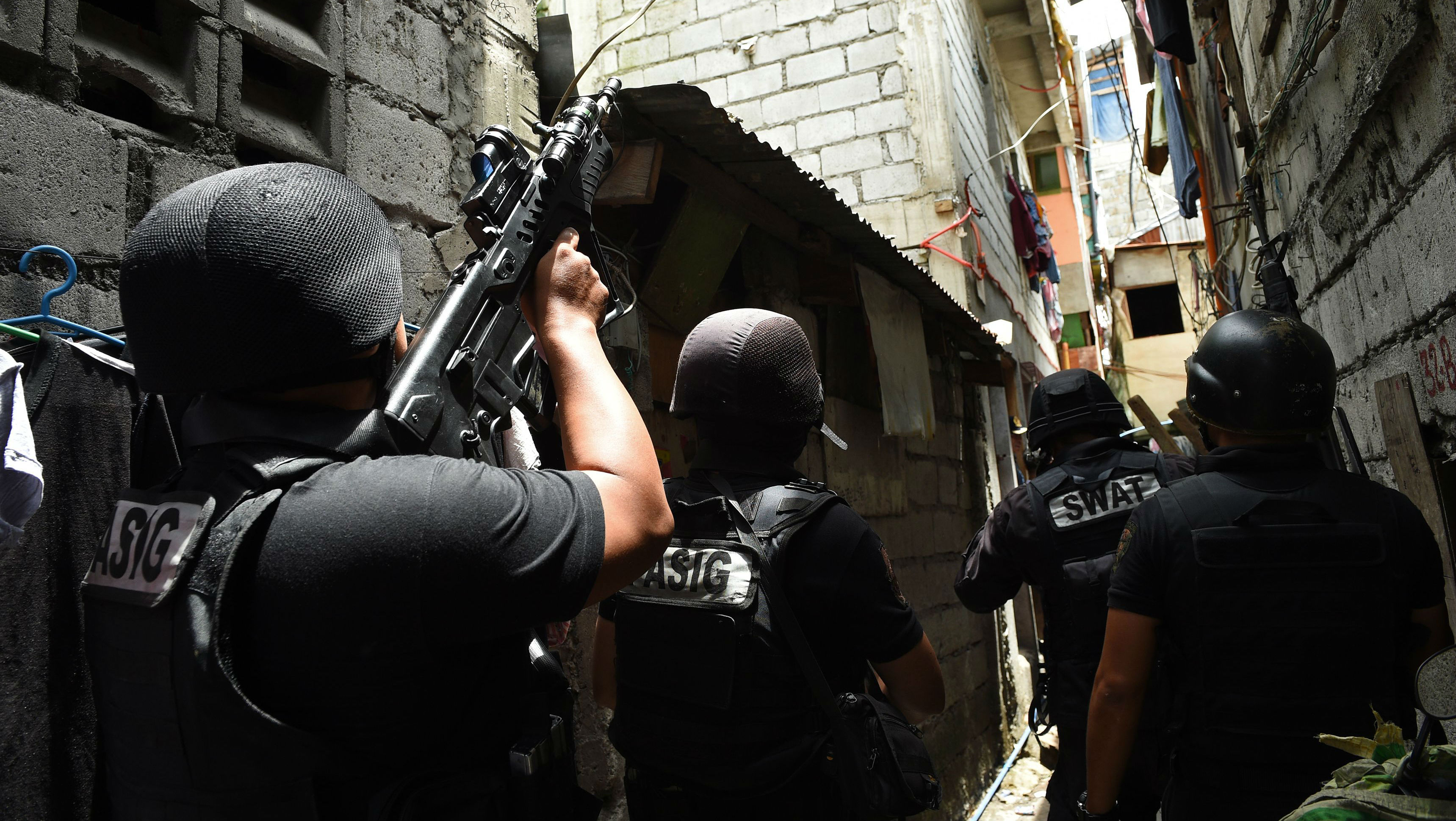Fact Check: The truth behind state-sponsored killings in the Philippines
Rodrigo Duterte's regime denies having blood on its hands, but the facts tell a different story

A free daily email with the biggest news stories of the day – and the best features from TheWeek.com
You are now subscribed
Your newsletter sign-up was successful
The Philippines government has rejected accusations of state-sponsored extrajudicial killings, insisting that the rule of law and human rights are being respected.
The administration spoke out hours before the arrest of Senator Leila de Lima, one of the fiercest critics of President Rodrigo Duterte and his ongoing crackdown on the country's drug trade.
Human rights groups say orders to kill thousands of suspected drug dealers have come from the highest level of government, but officials say vigilante groups are to blame. Who is telling the truth?
The Week
Escape your echo chamber. Get the facts behind the news, plus analysis from multiple perspectives.

Sign up for The Week's Free Newsletters
From our morning news briefing to a weekly Good News Newsletter, get the best of The Week delivered directly to your inbox.
From our morning news briefing to a weekly Good News Newsletter, get the best of The Week delivered directly to your inbox.
Who says what?
Foreign minister Perfecto Yasay said yesterday that the Philippines government would vehemently defend its anti-drug campaign at an upcoming meeting of the UN Human Rights Council.
"Our justice system does not tolerate violations of human rights, does not tolerate any state-sponsored extra-judicial killings," he said. "That's the truth."
In a video recorded before her arrest, De Lima rubbished such claims in her trademark style. "There is no doubt that our president is a murderer and a sociopathic serial killer," she said. The senator was arrested for allegedly receiving money from drug dealers inside Philippine prisons, but she has dismissed the charges as a desperate attempt by Duterte to silence his biggest critic.
A free daily email with the biggest news stories of the day – and the best features from TheWeek.com
The President has long said that criminal suspects should be killed and has even claimed to do so himself, saying that during his time as mayor of the southern city of Davao, he shot dead at least three men suspected of kidnapping and rape.
After winning the presidential elections last May, he told supporters he would kill 100,000 criminals during his first six months in office and fill Manila Bay with so many dead bodies that the "fish will grow fat."
What are the facts?
Police data obtained by Human Right Watch reveals that at least 2,250 "suspected drug personalities" were killed by officers between July and January 2017. An additional 3,600 alleged drug dealers and users were reportedly killed by "unidentified gunmen".
Amnesty International puts the total number even higher, saying more than 7,000 state-sponsored killings have taken place since Duterte came to power, although it does not specify how many were by police officers.
Not a single officer has been prosecuted or dismissed from duty in relation to killings during drug operations, the organisation says. "Investigations are either non-existent or weak, making any effort made by the families of victims to bring their case to court futile," it adds.
Last year, an inquiry into extrajudicial killings, led by Senator de Lima, heard evidence from a former hitman that Duterte personally ordered many of the attacks.
The government dismissed his testimony and ousted De Lima from her role, replacing her with one of the President's allies, who went on to scrap the entire investigation.
Who is right?
In the absence of an independent inquiry, it is difficult to verify exactly how many extrajudicial killings have been carried out and by whom. What is evident, however, is that the foreign minister's claim is a lie. Human rights are clearly being violated in the Philippines, with police officers brazenly bypassing the rule of law and using shoot-to-kill on suspected drug dealers and users.
Whether or not the killings are personally ordered by Duterte is perhaps immaterial. His public support for the attacks have allowed police and vigilante groups to operate with impunity. De Lima's arrest is the latest sign Duterte's government is more concerned about prosecuting its critics than bringing the perpetrators of mass killings to justice.